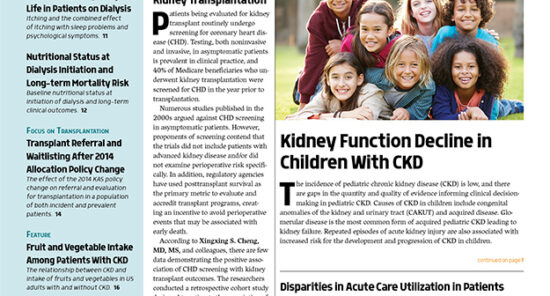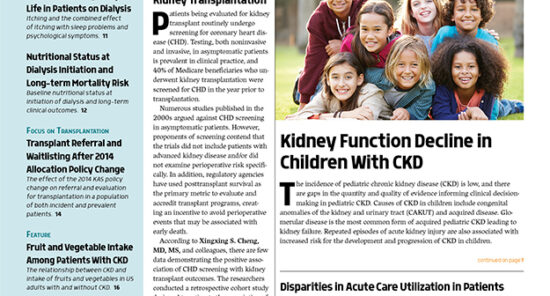Credit: Original article published here.Patients with glomerular disease may experience acute medical complications such as anasarca, infections, acute kidney injury, thromboembolism, and cardiovascualr events that require utilization of acute care (emergency department [ED] visit or hospitalization). In addition, patients with glomerular disease being treated with immunosuppressive therapies commonly experience infections that can result in utilization of acute care. According to Jill R. Krissberg, MD, MS, and colleagues, the risk of utilization of acute care may be affected by race, ethnicity, and socioeconomic status (SES). The researchers conducted a prospective cohort study designed to compare rates of acute care utilization across racial and ethnic groups in adults and children with glomerular disease in the CureGN (Cure Glomerulonephropathy) cohort. They sought to test the hypothesis that rates of acute care utilization would be increased among Black or Hispanic patients but that lower SES and more severe glomerular disease in those groups would explain any observed differences. Results of the study were reported in the American Journal of Kidney Diseases [2023;81(3):318-328]. The study cohort included 1456 adults and 768 children with biopsy-proven glomerular disease enrolled in the CureGN cohort. The study exposure was race and ethnicity as a participant-reported social factor. Race and
Credit: Original article published here.Kidney stone disease has an estimated prevalence of 8%-9%, and is associated with substantial rates of recurrence. While not completely understood, both genetic and environmental factors are known to be associated with the formation of kidney stones. Major international guidelines on the diagnostic workup and clinical management of patients with kidney stones emphasize the use of metabolic evaluation, including 24-hour urine collection to determine parameters that include volume, pH, calcium, oxalate, citrate, uric acid, potassium and magnesium. However, according to Pietro Manuel Ferraro, MD, MSc, PhD, and colleagues, there are conflicting data regarding actual implementation of 24-hour urine collections. In addition to imprecision and incompleteness, collecting urine throughout the day is perceived as being impractical and difficult to perform in clinical practice. The researchers conducted an analysis to assess the performance of spot urine measurement to estimate 24-hour excretion in patients with kidney stones. Results of the analysis were reported in Nephrology Dialysis Transplantation [2022;37(11):2171-2179]. The study recruited 74 adult patients ≥18 years of age with urinary stone disease from two centers (BioHealth Italia, Torino, Italy, [n=54] and Tufts University School of Medicine, Maine Medical Center, Portland, Maine, USA, [n=20]) from October 2013 to September 2014.



